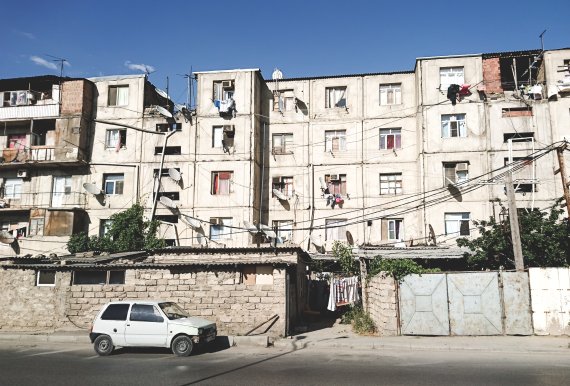The research project is an initiative of professor of Development Economics Nico Heerink and his Chinese partners from Nanjing Agricultural University. Heerink is a guest lecturer at this university. The research was funded by the NWO (the Dutch Research Council), that made one million euros available from the so-called Merian Fund. The Chines research council contributes 520,000 euros.
240 million people
‘We aim to study how the way in which migrants are housed, influences their integration’, Heerink clarifies. ‘In the Netherlands, this mainly concerns the integration of seasonal labourers, migrant workers and refugees. In China, this concerns domestic migrants; there is an enormous flow of migrants from rural areas to urban centres. Over 249 million people, primarily migrant workers.’
‘These workers officially live in the rural areas, but are located in the cities a large portion of the year’, Heerink continues. ‘They return home for holidays and vacations. Most of them hold low-income jobs in the catering sector, construction or industry. Consider, for example, the labourers that allow us to buy electronics and clothing that is made in China, offline or online through AliBaba. These migrants often live close to their work or in designated districts.’
In our country, there are pilots (Magic Mix) where refugees co-habit with Dutch residents in a single block
Nico Heerink, professor of Development Economics
This method of housing hampers integration, which, in turn, leads to segregation, unemployment, poverty, addiction and crime. The study focuses on various aspects of the problem. Heerink: ‘The research is partly a survey study. By datamining the data available at the Dutch Central Bureau for Statistics (CBS) and its Chinese equivalent, we hope to map the issues. What migrants are there, and how are they housed?’
Magic Mix
‘We also consider the effects of innovative housing programmes. In the Netherlands, pilots were launched (Magic Mix) where refugees co-habit with Dutch residents in a single block. The latter are expected to invest time in organising activities to involve the migrants in Dutch society. In China, we will study the effect social housing programmes have on integration.’
Heerink also notes that Chinese experiments where villages benefit from the expansion of urban areas are worthy of consideration. They trade the rights to building lands through a system of quotas. The research in the Netherlands focusses on the four major cities of Amsterdam, Rotterdam, The Hague and Utrecht, in collaboration with the Housing Association and Utrecht University.
Heerink will be recruiting two PhD researchers and a post-doc for this project. One of the PhD students will work in Utrecht. In China, four PhD researchers will contribute to the study. .

 Photo: Shutterstock
Photo: Shutterstock